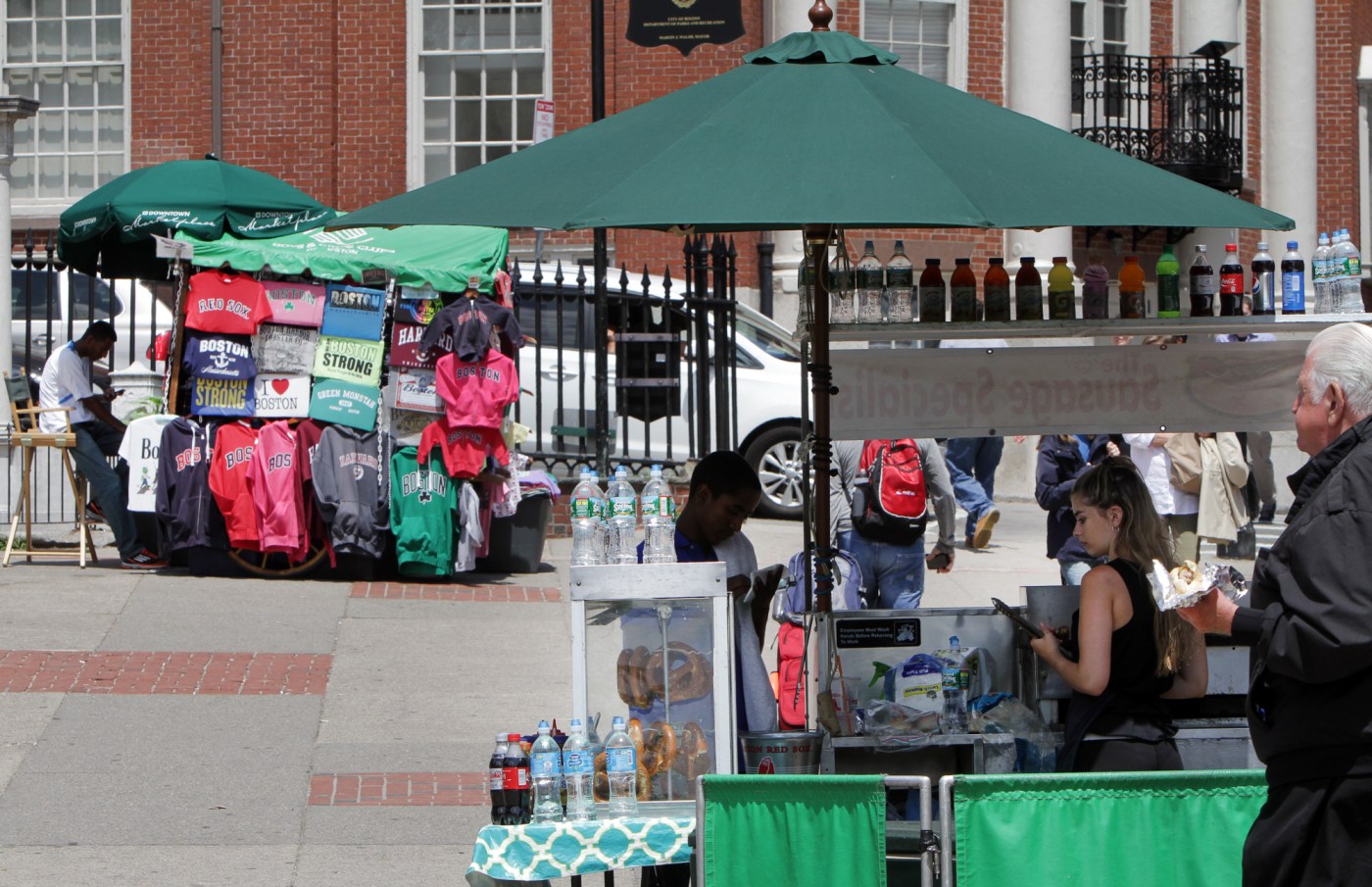
Boston food scene: City Council looks to make it easier to become a street vendor
In order to become a street vendor who sells food and drinks across Boston, you must overcome what City Councilor Gabriela Coletta calls a “tangled web of bureaucracy.”
Gaining the necessary permits from local and state agencies is a slippery process, says Coletta, who is behind a proposal that would make it much easier to become a street food vendor without a motorized cart.
The council’s Committee on Government Operations is set to hold a hearing Tuesday to go over Coletta’s request which calls for creation of a “non-motorized street food cart committee.”
Councilor Coletta
The committee would consist of various city departments including Public Works, Transportation, Inspectional Services, and Fire, along with the Office of Economic Opportunities and Inclusion. Together, it would review applications for non-motorized street food cart permits, establishing rules and regulations as appropriate.
One concern is that independent food sellers may very well be priced out of selling goods out of a motorized truck, which some sources say could cost far north of $100,000.
A docket for the proposed ordinance states that “residents resort to establishing street food carts largely out of survival or because they are unable to navigate the local bureaucracy without the help of an attorney or because they speak a language other than English.”
Vendors are often found outside TD Garden and Fenway Park as well as all over Faneuil Hall, and Coletta said the business model is becoming more common across the entire city.
In East Boston, she said, street food vending has emerged more frequently out of the pandemic than in the past at transit hubs, especially outside of Maverick and Airport stations. Vendors are typically seen selling cut fruit, pupusas and tamales out of baby strollers, truck beds and shopping carts, she said.
“Operators of these sidewalk enterprises are predominantly those who have immigrated here from other countries,” Coletta said in August, “and we should be celebrating and fostering anyone who wishes to share their culture and culinary talents in order to support themselves and their families.”
If approved, the “non-motorized street food cart committee” may establish sidewalk vending zones, each with at least three designated spaces where vendors can carry out business. The number of vendors per zone would be determined by the committee.
An application fee of $70 would be required from those seeking a permit or renewal of an existing one, while an annual fee would be based on a taxable market valuation of city property, according to the docket.
Each permit would be renewed every other year.
Coletta highlighted how the City Council in Washington D.C. passed legislation earlier this year “overhauling street vendor regulations in predetermined zones while providing opportunities for street vendors themselves to self-govern the sidewalks where they conduct business.”
“Once we pass these regulations,” she said, “we have the potential to unlock an economic tool that does not require significant upfront costs for businesses. This will allow people to build capital quickly without expensive costs associated with obtaining a brick-and-mortar or a food truck.”


